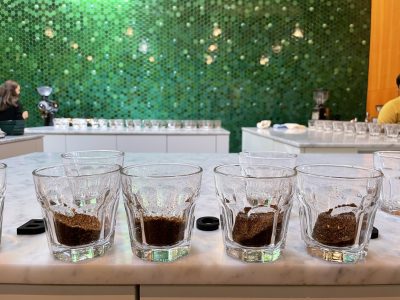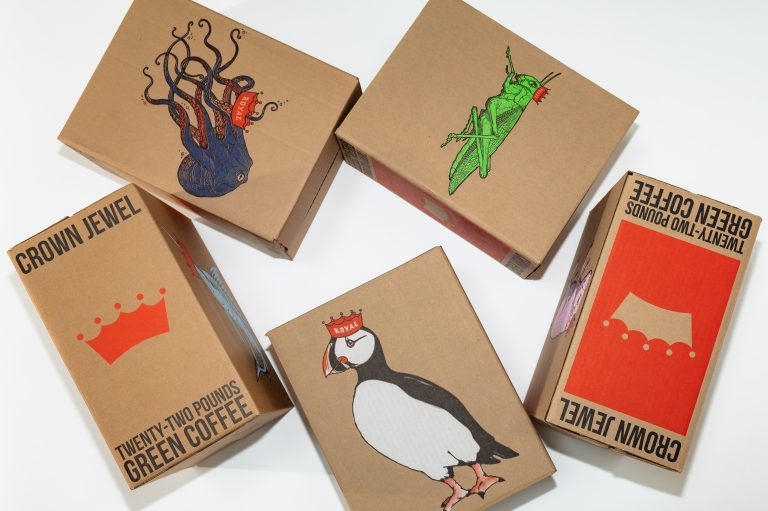By Rosi Quiñones
Coffee production has a legacy of inequality and abuse, so projects like Mayan Harvest that shake up the legacy power dynamics by rewarding the hard work of small scale farmers and giving women a platform to provide for themselves really excite me. When you empower a woman, you lift her entire family and community. In so doing, businesses like Mayan Harvest create a more sustainable future for the specialty coffee industry.
I first met Rosalba Cifuentes Tovia of Mayan Harvest when she knocked on the door of Royal’s office about 4 years ago and, to our surprise, already had a container of coffee in California! Since then, we’ve worked together to maintain quality, find markets, and increase the volume to make this a sustainable venture for her and to increase the impact in the community of Bella Vista, México. Rosalba is always thinking about the people of Bella Vista. Her life experience of hard work and hardship were unimaginable, but those struggles have enabled her to become the leader that she is now. She is always learning and promoting her community’s coffee wherever she goes. She has become an experienced cupper and is laser-focused on all aspects of quality. She is not afraid to take risks. Her perseverance and resilience inspire me every day. If you haven’t see it already, I highly recommend watching this short documentary on Rosalba by Revista Roast. They did an excellent job telling her story. You’ll even catch some of my colleagues from Royal Coffee sharing their experiences working with Rosalba.
Beyond Rosalba’s incredible story is the quality of her coffee. The altitude, abundance of fresh water, and geography help farmers maintain varieties that are harder to find in Mexico nowadays, like bourbon and typica which have adapted to these mountainous regions for decades. There are few coffees out there that have this level of complexity and delicacy of floral and fruit notes, while at the same time possessing mass appeal. Your regular customer will be pleased to taste the high sweetness and chocolaty, creamy body, while for the roaster, this coffee gives you the flexibility of different roast levels, and works magnificently in nearly every format from single origin espresso to limited-edition releases or unique blends.
With all this being said, I was thrilled to travel to Bella Vista this February along with five roasters who wanted to learn more about the project and get to know some of the farmers who grow the coffee that they love. We visited the new mill, cupped together with Rosalba’s QC team, and did a green analysis evaluation with her crew.
We got to see some of the farmers who I met last year when I first visited, like Doña Flora, whose health had improved in part thanks to the increased income and dental campaign provided by Mayan Harvest. This time we tried to visit new municipalities that we hadn’t reached before. Hugo Morales proudly showed us his chilacayotes, a huge squash of sweet flavor traditionally used in soup and desserts. Florismelda was kind enough to show us how to harvest the ripest cherries and Maydileni guided us to the top of the hill for a rewarding view of the valley. Fabio showed us typica plants that were decades old and explained how he performs a heavy pruning at his farm “el kijote”. Don Eugenio, the patriarch of the Cifuentes family explained the processes at his wet mill and shared some fresh sugarcane juice. Edilio and Elsida Lopez invited us to his beautiful farm across the river through a hanging bridge. We got back to town just in time for the final goodbye where a town meeting and dancing was prepared for us.
We were warmly welcomed in this small rural community as foreigners and buyers of coffee, but since we were almost all women, we were asked about our husbands quite a bit. This of course opened the door to have honest conversations about gender roles, exchange ideas, experiences, and challenges, which was quite interesting and enriching. On the third day we met about 20 women from the women’s group at El Progreso, and shared some roasted coffees we brought, with beans sourced from all over the world, a tiny gift that connected them to the global specialty coffee network.
Here are some pictures from the trip. I hope you enjoy!


































